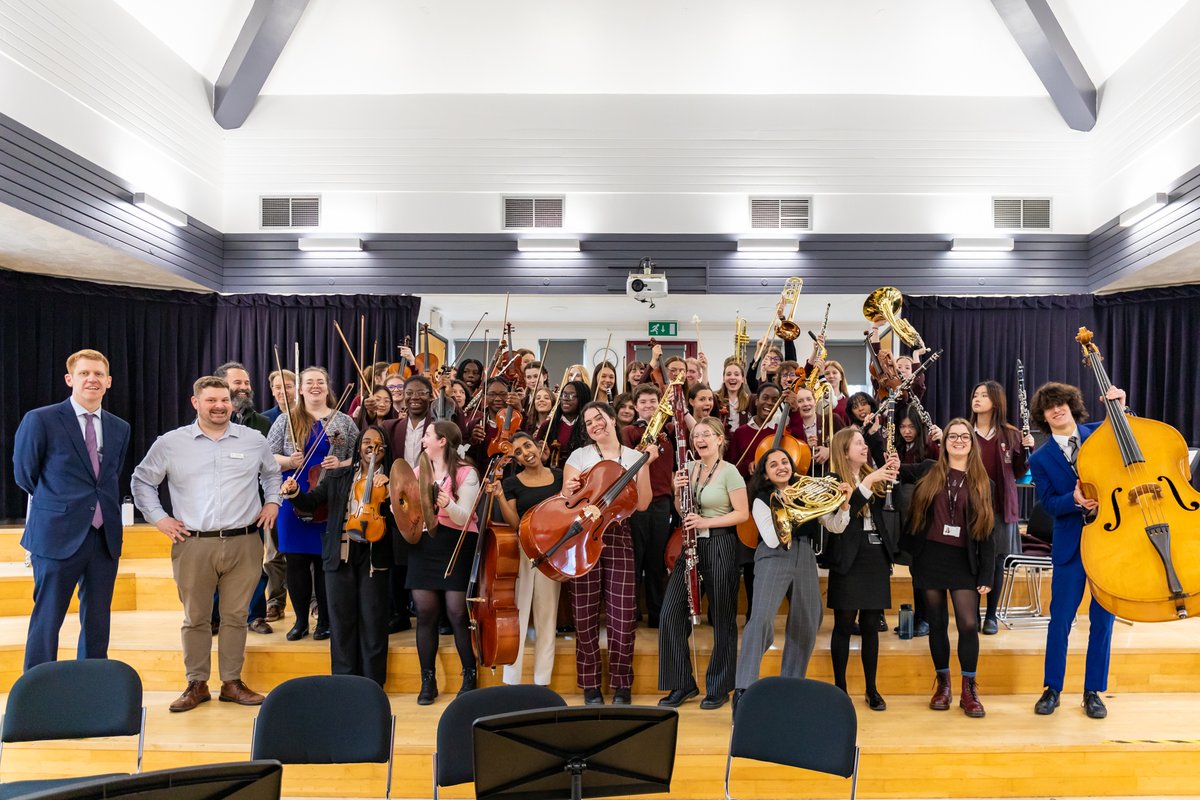Latest News
Year 10 Work Experience - Specsavers
Miss Griggs sent this report:
Lidia in 10N has taken the time to write up her Work Placement experience from Term 3. This detailed log of her week demonstrates the amazing opportunities and skills our students were able to take from their Work Experience week. Specsavers Maidstone commented on how proactive and hardworking Lidia was during her week with them, and congratulated her on making the most of the opportunity. Well done Lidia, and thank you for all your hard work and dedication shown to get the most out of the opportunity.
Lidia had this to say about her Work Experience week:
My Work Experience in Specsavers Maidstone started on Monday, 22 January and lasted till Friday, 26 January. I had such a valuable experience and gained an insight into Optometry, as well as the workplace. The skills I have observed and developed here solidify my goal of having a profession caring for and communicating with patients, in the future.
Day 1 (22/1/2024): On the first day of my Work Experience, I was welcomed on the shop floor by a warm team of staff. I was then given a tour of the Specsavers facilities and given an outline of my week. As well as this, I was provided with a Work Experience journal by Specsavers, which enabled me to reflect on my opportunities and observations, from my upcoming placements in a variety of departments. After my tour and introduction, I started my placement on Collections. Here, I worked with two Optical Assistants. Their role is to distribute glasses to customers, after being made by the Laboratory, and adjust the frame to improve vision most accurately. In this department, I observed the Optical Assistants communicate with customers, asking whether they felt their glasses were comfortable and if their vision felt improved. This allowed me to develop communication skills through listening to the Optical Assistants ask concise questions and explain their adjustments clearly.
Day 2 (23/1/24): On the second day, I began to feel more at ease in the Specsavers work environment and was familiar with the structure of the workplace. I spent the day with a Dispensing Optician, who receives a handover from the Optometrists and advises customers on which lenses and frames are most suitable. Through this, I saw the importance of effective communication, as the quality of the customers’ care and experience is dependent on the transfer of information between Optometrists and Dispensing Opticians. On this placement, I became more comfortable in a fast-paced work environment and began to develop an understanding of the technology used to take frame measurements and place orders on the staff computers. I once practised placing a fake order myself, which allowed me to develop my ICT skills.
Day 3 (24/1/24): On Wednesday, I had a placement on Pre-screen and observed the Optical Assistants and Clinical Technicians perform assessments on patients, using technology such as the OCT scan and FDT. I saw the results of the scan on the screen which allowed me to develop an understanding of how the scans are valuable for Optometrists to detect and eye conditions, such as glaucoma. My placement here allowed me to see the skill of teamwork in action, as the Specsavers workplace is interdependent: the role of other members of the Specsavers team helps other members. After observing, I was able to conduct my own OCT scan and Auto Refractor Test on a member of staff, which was really fascinating and enjoyable. I valued the opportunity to communicate with my ‘patient’ and describe the upcoming procedures/patient experience.
On this day, I also observed multiple sight tests. While shadowing the Optometrist, I listened to the way he interacted with patients. The Optometrist conducts the sight test, using the results of the Pre-screen assessments, to formulate the prescription specific to the patient. While discussing the results of the sight test and scans, the Optometrist was considerate and valued that the patient may be feeling concerned or distressed, especially during sensitive conversations on eye diseases. The educative side of Optometry surfaced here, which consolidates my aspiration, as I would like a career which implements patient communication and explanation.
Day 4 (25/1/24): From 10:00-12:00, I took part in the evaluation of a new scheme that Specsavers will be launching, which is Colorimetry. This consists of placing coloured films over text, to reduce symptoms of visual stress (which are typically co-occurring with Dyslexia). This would offer coloured lenses to be made for the customer, and improve their reading accuracy and speed, through alleviating visual stress.
After undergoing the assessment myself, as a trial, the staff and I collaborated to find solutions to problems which may arise when providing the assessment to customers. For example, the sudden change in coloured films back to white paper may exacerbate nervousness and symptoms of visual stress in customers, which may affect result of the assessment. As a result, it was decided that the films would be replaced with a different method, to minimise the contrast. Through this, I enhanced my skills of problem solving and collaboration, as we were presented with an issue and came to a solution, as a group.
Next, I was given a tour of the Laboratory where glasses were made. I saw the organisation which is necessary in the Lab setting as there are many orders with lenses and frames, so sorting them efficiently and correctly is essential.
Finally, I was given an overview of the Call Centre. Here, productivity is a highly important skill as there are many customers with enquiries and asking for advice. The staff must ensure they select the correct customer details to view and the correct appointment time, if that is what is asked. There are also many documents which must be sorted, for which organisation is needed.
Day 5 (26/1/24): On Friday, I had a placement in Contact Lenses, working with the Contact Lens Optician. Here, I observed multiple appointments and witnessed the use of technology, used to view the contact lens in the eye. The Contact Lens Optician communicated with the patient to have an overview of their comfort and expectation of contact lenses. The Optician would access patient details to view their previous prescriptions, sight test results or any past use of contact lenses. This allowed me to observe effective inquiry and analysis skills being utilised.
I also had the valuable opportunity to see the contact lens in the eye using a slit lamp. The photograph of the eye was shown on the Optician’s computer screen, so that the patient could have their eye condition explained. This presented the instructive and caring element of Optometry. Through this, I became familiar with the eye condition of corneal neovascularisation: due to the low breathability of the patient’s contact lenses, there was a lack of oxygen to the cornea so blood vessels began to grow to the area. This expanded my knowledge of Optometry.
Overall, my work experience was highly valuable and allowed me to gain an insight into the workplace and Optometry. I could see the way that staff communicated and interacted with customers in a respectful, polite and compassionate way to inform them of their choices with frames and lenses/ the results of their examinations or tests. This meant that I witnessed considerate care and developed essential skills which I can transfer to the future of my academic and professional career.
I feel I have gained communication, teamwork and time management skills through shadowing the staff at Specsavers and engaging in the tasks I was set. Through providing my own advice to a customer (I wear the same type of lenses), conducting my own OCT scan and completing administrative tasks like ordering glasses collections alphabetically, I acquired many skills which I can adapt to use in my future career and academic opportunities.


























